توضیحات
ABSTRACT
Research on social media as a source of knowledge coordination and communication has been flourishing. Organizations are increasingly focusing on teamwork as a creative solution for contemporary market challenges. In this study, we develop a mechanism to test the effects of the three dimensions of social media (social, cognitive, and hedonic use) on team creative performance in terms of knowledge management. Our survey data are collected from 382 members of 82 knowledge work teams. The analysis reveals that the three dimensions of social media have different effects on the transactive memory system. In addition, the dimensions of the transactive memory system enhance team creative performance through team creative efficacy. These findings bridge a literature gap by explaining the process and mechanism by which different social media uses influence team creative performance. This study has practical implications amongorganizations that aim to use social media to utilize each team member’s expert knowledge to boost creative performance.
INTRODUCTION
Social media has gone through rapid growth in recent years. Such growth holds great promises for interaction, communication, and organization performance. Mäntymäki and Riemer (2016) argued that the effective use of social media can increase the productivity of knowledge workers by about 20%–25%. Owing to the prevalence of team-based structures in the knowledge-based economy, social media promises to contribute to knowledge management (Di Iorio & Rossi, 2018) and team performance (Nissen & Bergin, 2013). A recent report claims that social media has distinct purposes, such as maintaining social relations, managing knowledge, and relieving stress (Guo, 2017). Previous studies also acknowledged the diverse purposes of social media (Cao & Ali, 2018; Li et al., 2015; Zolkepli & Kamarulzaman, 2015). However, scholars overlooked how the different uses of social media facilitate knowledge management among teams. Knowledge is considered a critical source for organizations to promote innovation and tackle competitive challenges (Alavi & Leidner, 2001).
چکیده
پژوهش در رسانه های اجتماعی به عنوان منبع هماهنگی و ارتباط دانش، شکوفا شده است. سازمانها به طور فزاینده ای بر کار تیمی تمرکز می کنند که به عنوان یک راه حل خلاق برای چالش های بازار معاصر است. در این مطالعه ما یک مکانیزم برای آزمون اثرات سه بعد رسانه های اجتماعی (اجتماعی، شناختی و هدیونی) بر عملکرد خلاقانه تیم از لحاظ مدیریت دانش ایجاد می کنیم. داده های نظرسنجی ما از 382 عضو از 82 تیم کار دانش جمع آوری شده است. تجزیه و تحلیل نشان می دهد که سه بعد رسانه های اجتماعی اثر متفاوتی بر سیستم حافظه Transactive دارند. علاوه بر این، ابعاد سیستم حافظه transactive، عملکرد خلاقانه تیم را از طریق کارایی خلاقانه تیم بهبود می بخشد. این یافته ها، شکاف ادبی را با توضیح فرایند و مکانیزمی که رسانه های اجتماعی مختلف از تاثیرات خلاقانه تیم استفاده می کنند، می شکند. این مطالعه مفاهیم عملی در میان سازمان هایی است که هدف از استفاده از رسانه های اجتماعی برای بهره گیری از دانش متخصص هر تیم برای بهبود عملکرد خلاقانه است.
مقدمه
رسانه های اجتماعی در سال های اخیر رشد سریع داشته اند. چنین رشدی وعده های زیادی برای تعامل، ارتباطات و عملکرد سازمان می دهد. Mäntymäki و Riemer (2016) ادعا می کنند که استفاده موثر از رسانه های اجتماعی می تواند بهره وری کارکنان دانش را در حدود 20 تا 25 درصد افزایش دهد. با توجه به شیوع ساختارهای مبتنی بر تیم در اقتصاد مبتنی بر دانش، رسانه های اجتماعی وعده داده است که به مدیریت دانش (Di Iorio & Rossi، 2018) و عملکرد تیم (Nissen & Bergin، 2013) کمک کند. یک گزارش اخیر ادعا می کند که رسانه های اجتماعی اهداف متفاوتی دارند مانند حفظ روابط اجتماعی، مدیریت دانش و کاهش استرس (Guo، 2017). مطالعات قبلی همچنین اهداف متنوع رسانه های اجتماعی را مورد تأیید قرار داد (کائو و علی، 2018؛ لی و همکاران، 2015؛ Zolkepli & Kamarulzaman، 2015). با این حال، محققان نادیده گرفته شده است که چگونه استفاده های مختلف از رسانه های اجتماعی مدیریت دانش در میان تیم ها را تسهیل می کند. دانش، یک منبع مهم برای سازمان ها برای ارتقاء نوآوری و مقابله با چالش های رقابتی (Alavi & Leidner، 2001) است.
Year: 2018
Publisher : ELSEVIER
By : Ahsan Ali, Hongwei Wang, Ali Nawaz Khan
File Information: English Language/ 39 Page / size: 509 KB
سال : 1396
ناشر : ELSEVIER
کاری از : احسان علی، هنگوی وانگ، علی نواز خان
اطلاعات فایل : زبان انگلیسی / 39 صفحه / حجم : KB 509


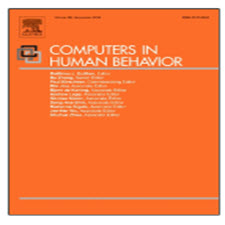
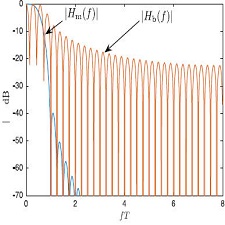
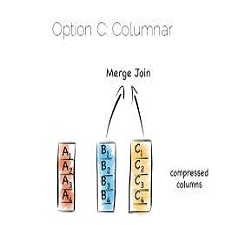



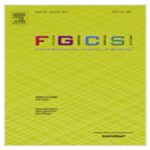
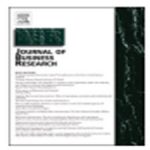
نقد و بررسیها
هنوز بررسیای ثبت نشده است.